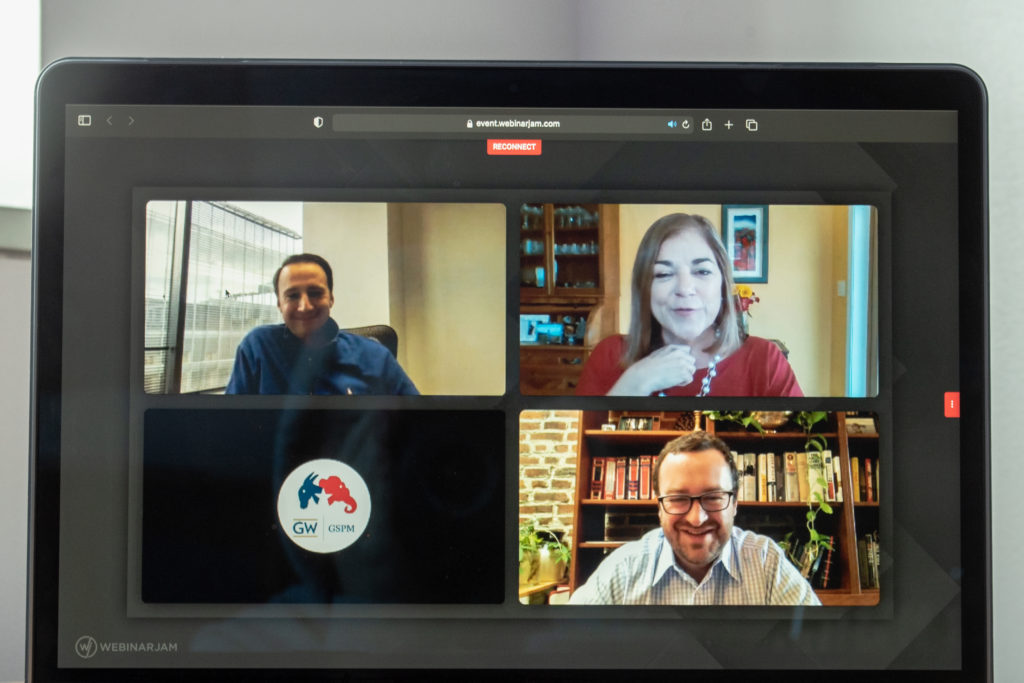Former U.S. representatives discussed their experiences fundraising for campaigns and congressional office during an event Thursday.
The Graduate School of Political Management hosted the webinar featuring former Rep. Loretta Sanchez, D-Calif., and former Rep. Ryan Costello, R-Pa., who recapped their experiences with campaign fundraising and shared their views on reforms to fundraising laws. Reid Wilson, a national correspondent for The Hill and an adjunct professor at GSPM, moderated the event as part of GSPM’s virtual series “Agree or Disagree: Conversations Across the Aisle.”
Costello said volunteering for political campaigns and building relationships with political consultants provided him with experience when it came time to launch his first bid for Congress, but spending time on fundraising calls disconnected him from the campaign process.
“When it’s August, people aren’t paying attention to your congressional race, but you have to get on the phone and make the calls,” he said.
He said he disagreed with reforms to campaign fundraising laws because high-profile candidates could circumvent the regulations and continue to amass large amounts of money despite restrictions on campaign donations.
“Fundraising is different now, and all I would say is no matter what reforms you make in the campaign finance space, there’s going to be another way for money to come in,” Costello said.
Costello said students who are interested in running for office should save money and find a way to maintain a consistent income because candidates without independent wealth can find themselves campaigning full time.
“Let people know you are interested in running for something because that’s going to be your donor base, so really try to cultivate a data network for whatever the ultimate constituency is,” he said.
Sanchez said she struggled with fundraising in her first congressional campaign due to a lack of support from the Democratic Party in the primary election. But unlike most members of Congress, she enjoyed fundraising for her own political campaigns.
“I pick up the phone, and I talk to people,” she said. “I hear what my supporters have to say and what they’re thinking about. I really know my donors very well.”
Sanchez said reform is necessary to prevent large amounts of funds from influencing high-profile races. She said Congress should limit the number of donations and donors a campaign can use to drive up funding during an election cycle to keep extra, unnecessary funds out of elections.
“These donors become much much more selective about who they’re giving to,” Sanchez said. “That’s the first thing. The second thing is you don’t have all this money just from everywhere coming in if it’s limitless.”
Sanchez said students interested in pursuing elected office should pursue their higher education and succeed in their given career. She said career success can demonstrate a track record in qualifications and work ethic, which voters can use to select their candidate of preference.
Previous experience in political campaigns can also benefit individuals trying to decide whether to run for office in the future, Sanchez added.
“See if you even like door-to-door campaigning, the politics and the weasel ways that you may have to talk about things so as to not get people angry about things, if you like it, stay on the campaign,” she said.







